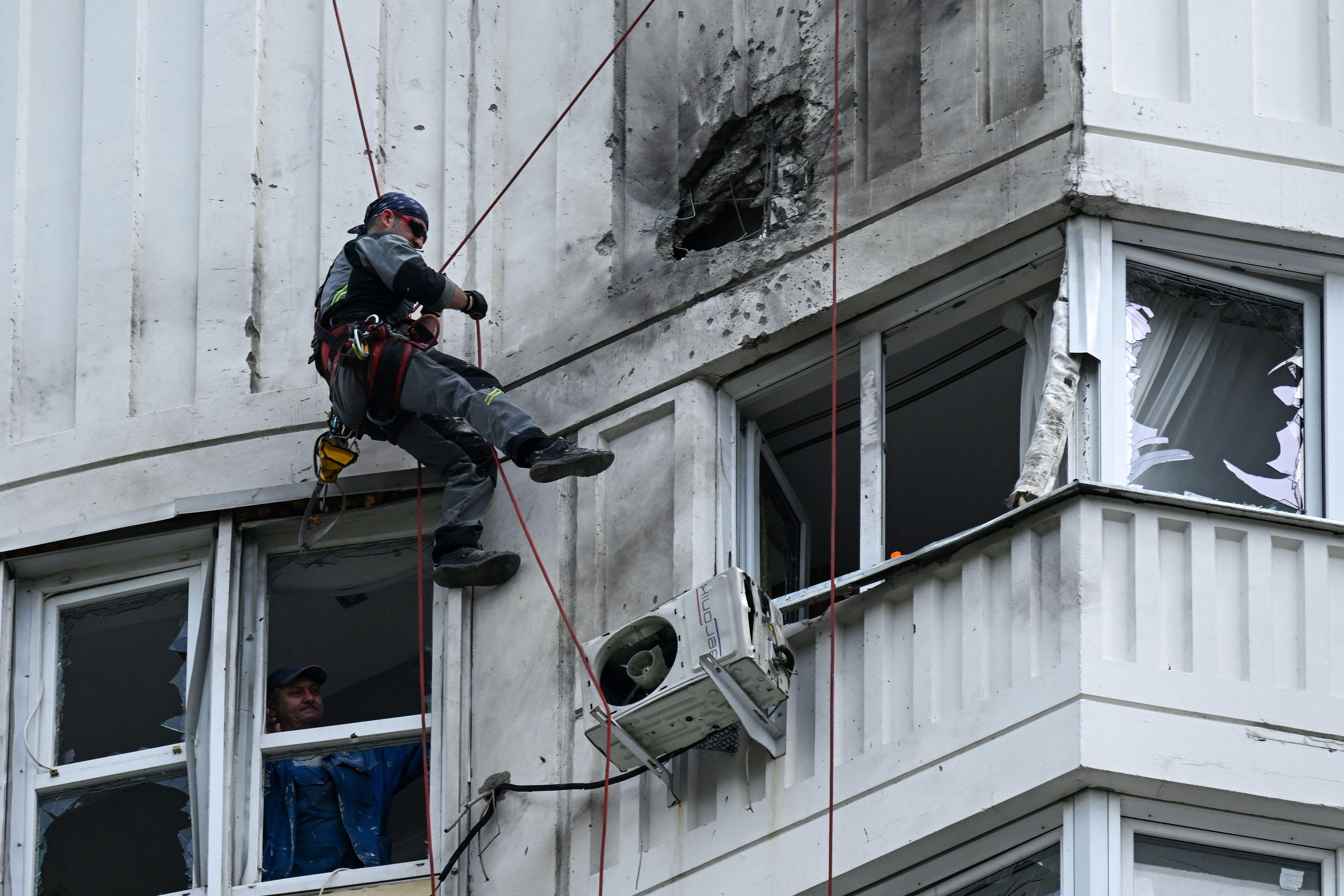The drone attack on Moscow early Tuesday morning showed that the war is real and near, not just for Ukrainians but also for Russians—a message that can’t be good for Vladimir Putin.
At least eight drones flew over Russia’s capital in the wee hours, almost certainly launched by Ukraine (or perhaps by Russian rebels sympathetic to Ukraine’s cause). The Kremlin claims that air-defense crews shot down or electronically jammed all the drones and that the damage done to a few apartment buildings was caused by metal shards of the disabled airframes as they fell from the sky.
Even if this claim is true, it doesn’t matter. The attack demonstrates that Russia’s skies are porous, that Russian civilians are vulnerable. This new reality disrupts the image that Putin has tried to fashion in Russia’s state-owned mass media—an image that paints the war as something terrible but distant.
Just last week, as pro-Ukrainian militias tore across the southwestern border and fought for two days on Russian territory, Putin pretended nothing had happened. As the New York Times reported, Putin “handed out medals, met the patriarch of the Russian Orthodox Church, hosted friendly foreign leaders, and made televised small talk with a Russian judge about how Ukraine was not a real country. … In public, he says next to nothing about the course of the war and betrays little concern about Russia’s setbacks.”
Drone flights over Moscow—coming a few weeks after two drone strikes on the Kremlin itself—make it harder for Putin to sustain this fiction. The attacks may have done little physical damage, but explosions were heard, and windows were rattled (a few were shattered). The psychological—and potentially political—damage can’t be dismissed.
In theory, these strikes could have a galvanizing effect on Russian morale, stiffening the citizenry’s support of the war against Ukraine. But if the Russian army’s sluggishness on the battlefield persists, and if the Ukrainian army’s impending offensive breaks through the lines and recaptures miles of territory ever closer to Russia’s border, then these penetrations of Moscow’s skies are more likely to demoralize Russian citizens—making them palpably aware of the war and eager to see it end.
A spokesman for the Ukrainian air force declined to comment on the drone attack. An adviser to President Volodymyr Zelensky said the Kyiv government was “not directly involved” in the attack (a phrase that leaves open wide loopholes of possible involvement). Putin, his aides, and most Russian citizens probably assume that Ukraine launched the drones—but again, it doesn’t much matter. Whatever foes committed the deed, they managed to do it; Russia’s overlords couldn’t stop them. The war, which they have long said would not intrude upon the Russian people’s daily lives, has come home.
